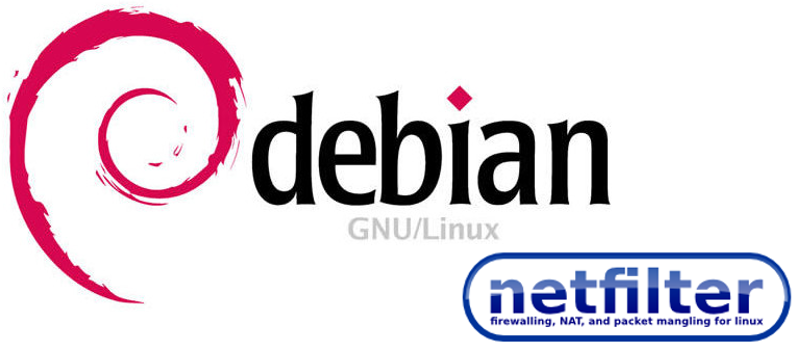So,
Thailand Mini-DebCamp 2010 in Khon Kaen has already ended. It's another memorable event I've joined, and especially for this one, been in the organizing team. We owed many people for its success.
I'd like to thank our guest DDs for their talks, many of which are improvised. Special thanks to Paul Wise and Yakiharu Yabuki for preparing the talks on Debian Social Contract and Debian packaging in one night, so our audiences can prepare themselves for the
Bug Squashing Party in the next 3 consecutive days. Thanks Paul Wise, Andrew Lee, Yakiharu Yabuki, Daiki Ueno, Christian Perrier and our local participants for their efforts in tackling more than 50 bugs during the BSP, 30 of which have been closed and 14 with proposed patches.
Thanks Christian Perrier for several talks in the last two days. We also had
Andrew Lee's talk on Debian EzGo project, along with talks from our local distro developers (
Linux SIS,
Linux TLE) on what are being worked on and what can be pushed into Debian. And Neutron Soutmun had presented some future plan on the
RahuNAS, a captive portal software based on Debian.
A special agenda had been arranged to improve Debian mirroring in Thailand.
Chatchai Jantaraprim, the ftp.th.debian.org maintainer, had shared us the backgrounds and motivations behind the official mirror setup for Thailand. Andrew Lee, the ftp.tw.debian.org maintainer,
had introduced us to the Debian mirroring infrastructure, and encouraged the local mirror Debian mirror maintainers to do it Debian way. We had exchanged experiences and problems found among the current mirror sites, which can be much useful for their improvements, as well as cooperation in the future.
Christian Perrier had also introduced us to the
Debian translation workflow and
how to coordinate translation via mailing list. This can be useful in the future for Thai if we can form a team, rather than a single-handed translation as present.
Christian's talk on Debian contribution paths, along with their fresh hands-on experience in the BSP, had indeed motivated many local people to join Debian. I've been told by some people that they wanted to actually join Debian after this event, after just having a wish to do so for a long time.
And Christian's yet another talk on key signing, with
live demonstration, was really helpful for Thai audiences, as few of us were familiar with the concept and practice. Yes, taking care of PGP key does require special cares!
Night chats and parties were also cool. We enjoyed the drinks (especially,
Debian wine!), snacks, and chats together, and exchanged many stories. For me personally, it made me feel Debian as a live community, with people living in it.
For the record, we even had a
real bug squashing party, as fried bugs are among well-known Esaan dishes. And we had immediately got new voluntary vegetarians because of it! Hee hee.. Hello Christian, I witnessed it. ;-) And
thumbs up to Yabuki for his bravery!
Yes, it's a wonderful event for me indeed. Thanks
Khon Kaen University (
Kitt Tientanopajai et. al.) for hosting it. Thanks
NECTEC Information and Mobile Applications Program and
Science Park KKU for the financial support. Thanks NECTEC people for taking care of foreign participants in traveling between Bangkok and Khon Kaen. And thanks all participants for their contributions to make this event a great one!
Picture credits:
Supphachoke Suntiwichaya,
DebConf Gallery
 There are about 15 Netfilter packages in Debian, and they are maintained
by separate people.
Yersterday, I contacted the maintainers of the main packages to propose
the creation of a pkg-netfilter team to maintain all the packages together.
The benefits of maintaining packages in a team is already known to all, and
I would expect to rise the overall quality of the packages due to this
movement.
By now, the involved packages and maintainers are:
There are about 15 Netfilter packages in Debian, and they are maintained
by separate people.
Yersterday, I contacted the maintainers of the main packages to propose
the creation of a pkg-netfilter team to maintain all the packages together.
The benefits of maintaining packages in a team is already known to all, and
I would expect to rise the overall quality of the packages due to this
movement.
By now, the involved packages and maintainers are:
 I'm now on my way back from The first miniDebCamp and miniDebconf that
happened from March 13th to March 19th in Khon Kaen, Thailand.
This even was organized locally by a team of very motivated Thai
Debian enthusiasts and contributors, such as Theppitak Karoonboonyanan
(*the* Thai DD), Neutron Soutmun, Kitt Tientanopajai, and all those whose name I'm
not remembering as of now (I hope they won't mind).
The even had kinda the structure of DebConfs, with a few days of "Debcamp"
to begin. See the
I'm now on my way back from The first miniDebCamp and miniDebconf that
happened from March 13th to March 19th in Khon Kaen, Thailand.
This even was organized locally by a team of very motivated Thai
Debian enthusiasts and contributors, such as Theppitak Karoonboonyanan
(*the* Thai DD), Neutron Soutmun, Kitt Tientanopajai, and all those whose name I'm
not remembering as of now (I hope they won't mind).
The even had kinda the structure of DebConfs, with a few days of "Debcamp"
to begin. See the